Difference between revisions of "Ansco Memo"
Hanskerensky (talk | contribs) (Added link to user manual page) |
(Photo of cassetre) |
||
| Line 21: | Line 21: | ||
The Memo features a claw-based film-advance mechanism, like a cine camera, rather than a sprocket system as on a conventional 35mm camera. It made 50 exposures 18×23mm. | The Memo features a claw-based film-advance mechanism, like a cine camera, rather than a sprocket system as on a conventional 35mm camera. It made 50 exposures 18×23mm. | ||
| + | {{Flickr_image | ||
| + | ||image_source= http://www.flickr.com/photos/26092923@N02/4503629674/in/pool-camerawiki | ||
| + | |image= http://farm3.static.flickr.com/2795/4503629674_e3967396c0_m.jpg | ||
| + | |image_align= left | ||
| + | |image_text= Ansco Memo cassette (left) and<br/>Agfa Karat cassette (right) | ||
| + | |image_by= Jack Hufnagel | ||
| + | |image_rights= with permission | ||
| + | }} | ||
{{br}} | {{br}} | ||
==Notes== | ==Notes== | ||
Revision as of 20:24, 12 August 2023
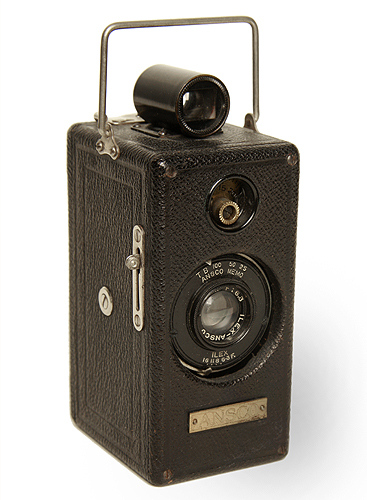
|
| Early leather-covered Memo image by Rick Soloway (Image rights) |

|
| Original varnished-wood Memo image by John Kratz (Image rights) |
The Ansco Memo is an American 35mm camera introduced in c1926-27[1], using Ansco's own cassette system (35mm cassettes would not be standardised until 1934). The film traveled vertically, as in a movie camera; and each frame was half the size of the 24x36mm format popularized by the Leica for stills cameras.
The earliest version of the Ansco Memo box camera was made of varnished wood. The wooden housings of the later versions were covered with leather. Several months after the Memo began receiving its leather covering, a shutter release guard was added, to prevent accidental shutter actuation.
The Memo features a claw-based film-advance mechanism, like a cine camera, rather than a sprocket system as on a conventional 35mm camera. It made 50 exposures 18×23mm.

|
| Ansco Memo cassette (left) and Agfa Karat cassette (right) image by Jack Hufnagel (Image rights) |
Notes
- ↑ There is some argument about this; see Scott's Photographica Memo page
Links
- Ansco Memo user manual at Butkus.org
- Ansco Memo at Scott's Photographica
- Ansco Memo at BoxCameras.com via Internet Archive: The Wayback Machine
- Detailed description at Minox, Metol & Macintosh (archived)
- August, 1927 advertisement for the Memo in National Geographic magazine, in the camerawiki Flickr stream
- Ansco Memo at Sylvain Halgand's Collection Appareils (in French)
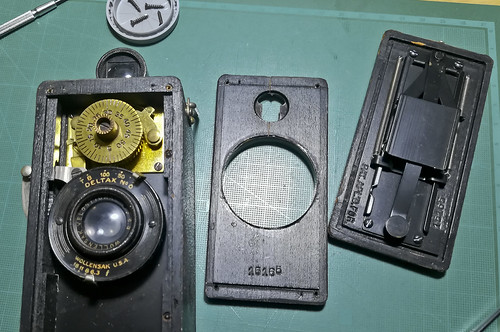
|
| Memo disassembled image by SBA73 (Image rights) |
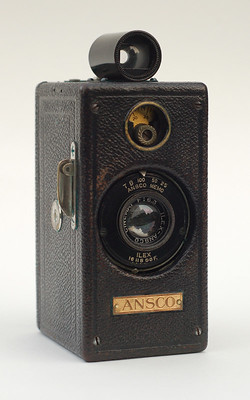
|
| Later version with shutter release guard (missing handle) image by John Kratz (Image rights) |
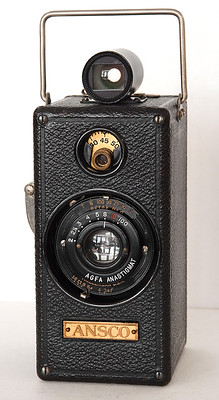
|
| c.1930 Memo with Agfa Anastigmat in Betax No. 0 shutter image by Geoff Harrisson (Image rights) |
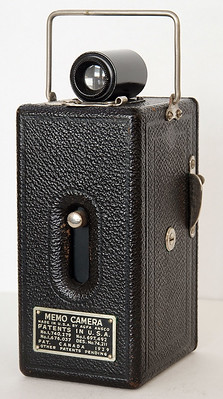
|
| Rear view showing film advance knob for claw mechanism image by Geoff Harrisson (Image rights) |